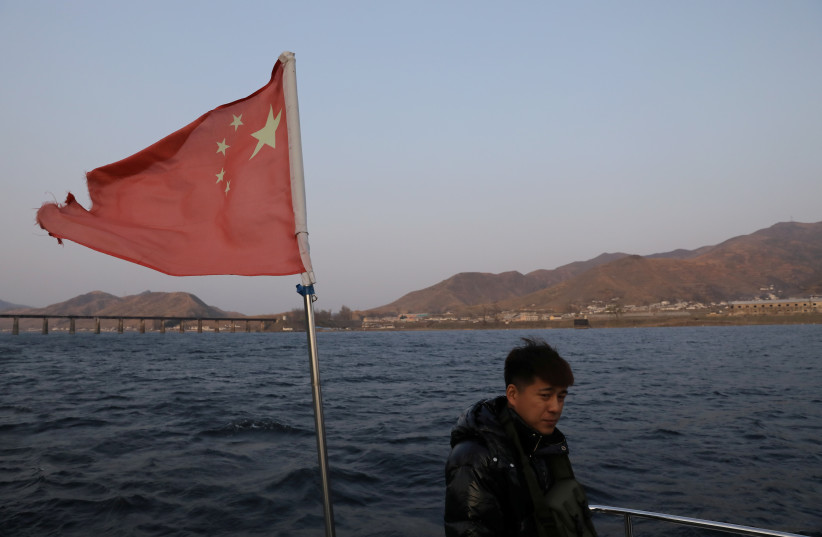On January 24, China and Israel celebrated 30 years of formal relations, marked by an anticlimax caused mostly by the growing tensions between the United States and China.
Politically, the collapse of the Soviet Union and the rise of the US to the status of the world’s single superpower created the required background for the formulation of these relations.
Furthermore, the Madrid Conference at the end of 1991, which brought together several Arab states and Israel to discuss Middle Eastern issues, created the necessary international and domestic legitimization for China to pursue more formalized relations.
For China, Israel’s know-how in agriculture, desertification and water engineering were assets to be employed by the Chinese leadership in the post-Mao era to take China out of the economic doldrums.
The possibility of penetrating the Chinese Wall was Israel’s ambition and loomed high in its calculations, since it hoped to benefit from the large Chinese market, which then also included the security sector.

While the cooperation in the security domain has, since 2000, been permanently eliminated by heavy US pressure on Israel following the Phalcon incident, in all other fields, including hi-tech, agricultural technology, foodtech and infrastructure, relations between the two countries have flourished.
In pursuing their economic agendas, both countries tacitly agreed to disagree on major political differences. China has not changed its position on Arab- and Palestinian-Israeli relations, but it mostly refrains from openly criticizing Israel or conditioning relations with it upon certain actions.
Furthermore, China leans heavily toward Iran and takes a softer line on the latter’s violations of the 2015 nuclear deal, the JCPOA. On the other hand, Israel clearly tows the American line on issues pertaining to the US-China rivalry, though it refrains, with very few exceptions, from public statements and expressions.
This explains why President Xi Jinping and then-prime minister Benjamin Netanyahu categorized in 2017 the bilateral relations as a Comprehensive Innovation Partnership – a characterization of relations that Israel only shares with Switzerland. Both are considered having highly innovative and tech-savvy industries.
As part of the 30th anniversary of the establishment of China-Israel diplomatic relations, the fifth meeting of the China-Israel Joint Committee on Innovation Cooperation (JCIC) was convened, two years after it last met in 2018. This year, the JCIC was co-chaired by Foreign Minister Yair Lapid and Chinese Vice President Wang Qishan.
The JCIC is an Israeli Foreign Ministry initiative intended to establish a G2G mechanism between 15 government offices and agencies in Israel and China, with a focus on the development and promotion of economic and innovative-driven cooperation.
Contrary to previous meetings, this year it was reported that Israel informed its US counterparts about its intention to hold the JCIC, probably due to the growing technological and economic competition between China and the US, as well as concerns by the US government regarding increased Chinese involvement in Israel’s economy, which is manifested in increased trade and incoming Chinese investments.
During the meeting, the two countries signed the China-Israel Innovation Cooperation Action Plan (2022-2024), as well as seven cooperation agreements in the fields of science and technology, health, culture, environmental protection, clean energy and intellectual-property rights.
During the JCIC, China’s representative, Wang Qishan, said Israel should “view the important role of the committee from a strategic perspective and see it as an opportunity to enhance political mutual trust.” He also expressed his hope that the two sides would promote the implementation of “important consensuses and major projects.”
Although Wang’s statements express a measure of confidence, they also express growing concerns regarding the direction that China’s relations with Israel are taking, particularly in light of increased US pressure on Beijing.
Wang’s statements also express China’s dissatisfaction with Israel’s cautious approach to incoming Chinese investments, especially in infrastructure, as well as dissatisfaction with Jerusalem’s support in the UN regarding the independent investigation of human-rights issues in Xinjiang.
Indeed, a few days later, a bid by two state-owned Chinese enterprises, CRCC and CRCC, to participate in the establishment of the Purple and Green lines for the light rail in Tel Aviv was rejected.
While Israel wishes to continue having healthy economic relations with China, it realizes that these are becoming closely attached to the great-power rivalry between the US and a rising China. A further deterioration in the US-China confrontation, and the possibility that it may turn into Cold War 2.0, presents Israel with a severe dilemma with a potential heavy price tag tied to any course of action it decides to follow.
Dr. Doron Ella is a postdoctoral fellow at the Hebrew University of Jerusalem’s Leonard Davis Institute for International Relations. Dr. Oded Eran was Israel’s ambassador to Jordan and the European Union. Both are senior researchers in the China Program at Tel Aviv University’s Institute for National Security Studies.
